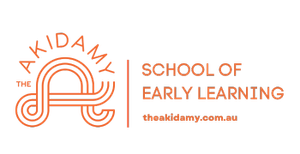Environmental and Sustainability Responsible Policy
POLICY CONTENT
Our School encourages the awareness of environmental responsibility and implements practices that contribute to a sustainable future. Children are supported to become environmentally responsible and show respect for the environment. We practice and promote sustainability through reducing waste, minimising consumption, and protecting and conserving wildlife and natural habitats.NATIONAL QUALITY STANDARD (NQS)
| QUALITY AREA 3: Physical Environment |
|---|
| 3.2 | Use | The service environment is inclusive, promotes competence and supports exploration and play-based learning. |
| 3.2.1 | Inclusive environment | Outdoor and indoor spaces are organised and adapted to support every child's participation and to engage every child in quality experiences in both built and natural environments. |
| 3.2.2 | Resource support play-based learning | Resources, materials and equipment allow for multiple uses, are sufficient in number, and enable every child to engage in play-based learning. |
| 3.2.3 | Environmentally responsible | The service cares for the environment and supports children to become environmentally responsible. |
PURPOSE
We believe in educating children about being environmentally responsible which is promoted and supported through daily practices, resource and interactions. Sustainable practice is encouraged within the School and community, assisting children and families to become advocates for a sustainable future.SCOPE
This policy applies to children, families, educators, staff, management, Approved Provider, Nominated Supervisor, students, volunteers and visitors of the School.IMPLEMENTATION
Teaching and learning about being environmentally responsible starts with everyday practice. We believe being environmentally responsible should be embedded into the operations of the School, rather than being a tokenistic ‘theme’ that is investigated every now and then. Our Service is committed to protecting our environment to ensure a sustainable future for our children. This involves educators, children and families working together to protect our environment as we educate children about the importance of being environmentally responsible within our everyday practice.Management and Supervisors will:
- Install solar panels
- encourage staff to take public transport and walk to work- this is supported by offering staff a sustainability bonus
- network with the local community to keep up to date with current practices and ideas for being environmentally responsible. This may include installing water tanks, grey water system, converting toilet cisterns to dual flush, and converting to water saving taps
- encourage educators, families and children to engage in sustainable practices and appreciate the natural environment
- provide professional development opportunities for educators to learn about integrating environmentally sustainable education into all areas of their program
- review the development of a sustainable Quality Improvement Plan (QIP) development using environmentally principles
- ensure the School joins a preferred provider e.g., the NSW Early Childhood Environmental Education Network (ECEEN) (or State/Territory equivalent) to liaise with other education and care services and maintain currency on practices and ideas for being environmentally responsible
- where relevant, review policies and procedures within the School to achieve more sustainable outcomes
- use electronic communication where possible to reduce paper use within the office and in each room for newsletters, billing, and other communication needs
- conduct environmentally responsible audits to ensure consistency and continuous improvement
- source resources and materials from Reverse Garbage or second-hand stores to use within the Service
- ensure sustainable practices are incorporated into the daily routine
- collaborate with families and the community for involvement in potential quality practice for the Service. For example: Take 3 for the Sea, Food wise, Planet Ark
- incorporate recycling as part of everyday practice at the Service. Recyclable containers will be provided throughout mealtimes and experiences.
- role model environmentally responsible practices
- discuss environmentally responsible practices with the children and families as part of the curriculum
- provide information to families on environmentally responsible practices that are implemented at the Service and encourage the application of these practices in the home environment
- share ideas between educators, children, and families about environmentally responsible ideas, implementation, and resources. This will be supported through our communication strategies, including parent meetings, emails, newsletters, and informal conversations
- use a worm farm/composting bin to reduce food waste in the Service. Children will be encouraged to place food scraps into separate containers for use in the worm farm or composting bin. Educators will provide visual guides and discuss with the children and families which scraps worms can eat, which foods can be composted, and which food scraps must go in the bin. The children will be involved in maintaining the worm farm/ compost bin
- role model energy and water conservation practices: For example, turning off lights and air-conditioning when a room is not in use, emptying water play containers onto garden areas
- seek to purchase equipment that is environmentally friendly where possible. Educators will reduce the amount of plastic and disposable equipment they purchase and select materials that are made of natural materials
- use the concept of ‘reduce, re-use and recycle’, which will become part of everyday practice for both children and educators to build lifelong attitudes towards environmentally responsible practices
- use ‘green cleaning’ products to replace chemicals where possible
OPERATING PRACTICES
Sustainable practices may include:
| SUSTAINABLE PRACTICE | IDEAS |
|---|---|
| RECYCLING |
|
| GARDENING |
|
| ENERGY CONSERVATION |
|
| WATER CONSERVATION |
|
| NATURE AND WILDLIFE |
|
| COMMUNICATE |
|
SOURCE
Australian Association for Environmental Education (AAEE): aaee.org.auDepartment of Environment and Energy: environment.gov.au
Education and Care Services National Regulations. (2011).
NSW Early Childhood Environmental Education Network (ECEEN): eceen.org.au
Queensland Early Childhood Sustainability Network (QECSN): qecsn.org.au
Revised National Quality Standard. (2018).
